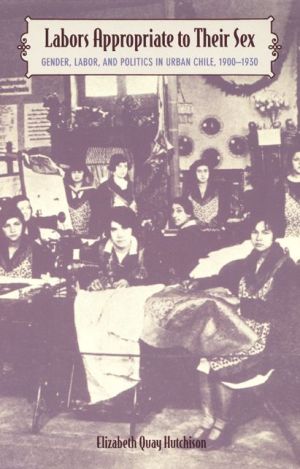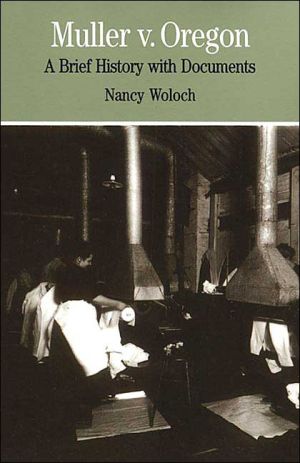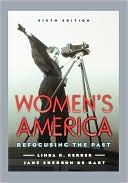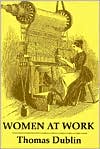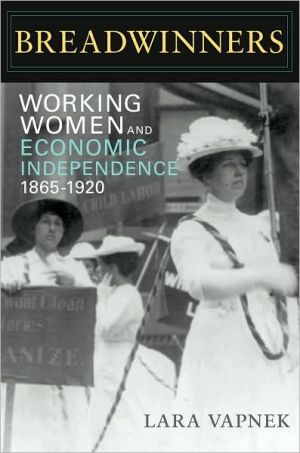Labors Appropriate to Their Sex: Gender, Labor, and Politics in Urban Chile, 1900-1930
In Labors Appropriate to Their Sex Elizabeth Quay Hutchison addresses the plight of working women in early twentieth-century Chile, when the growth of urban manufacturing was transforming the contours of women’s wage work and stimulating significant public debate, new legislation, educational reform, and social movements directed at women workers. Challenging earlier interpretations of women’s economic role in Chile’s industrial growth, which took at face value census figures showing a...
Search in google:
In Labors Appropriate to Their Sex, Elizabeth Quay Hutchison addresses the plight of working women in early-twentieth-century Chile, when the growth of urban manufacturing was transforming the contours of women's wage work and stimulating significant public debate, new legislation, educational reform, and social movements directed at women workers. Challenging earlier interpretations of women's economic role in Chile's industrial growth, which took at face value census figures showing a dramatic decline in women's industrial work after 1907, Hutchison shows how the spread of industrial sweatshops and changing definitions of employment in the census combined to make female labor disappear from census records at the same time that it was in fact burgeoning in urban areas. In addition to population and industrial censuses, Hutchison culls published and archival sources to illuminate such misconceptions and to reveal how women's paid labor became a locus of anxiety for a society confronting social problems—both real and imagined—that were linked to industrialization and modernization. The limited options of working women were viewed by politicians, elite women, industrialists, and labor organizers as indicative of a society in crisis, she claims, yet their struggles were also viewed as the potential springboard for reform. Labor Appropriate to Their Sex thus demonstrates how changing norms concerning gender and work were central factors in conditioning the behavior of both male and female workers, relations between capital and labor, and political change and reform in Chile.
List of TablesList of IllustrationsAcknowledgmentsIntroduction1IWorking-Class Life and Politics1Gender, Industrialization, and Urban Change in Santiago192Women at Work in Santiago363"To Work Like Men and Not Cry Like Women": The Problem of Women in Male Workers' Politics594Somos Todas Obreras! Socialists and Working-Class Feminism97IIWomen Workers and the Social Question5Women's Vocational Training: The Female Face of Industrialization1436Senoras y Senoritas: Catholic Women Defend the Hijas de Familia1717Women, Work, and Motherhood: Gender and Legislative Consensus198Conclusion: Women, Work, and Historical Change233Appendices245Abbreviations257Notes259Bibliography325Index339
\ From the Publisher"As part of a growing body of groundbreaking scholarship on women and gender in Chilean history, Hutchison’s Labors Appropriate to Their Sex makes an important contribution to the existing scholarship on working-class women in early twentieth-century Latin America." - Christine Ehrick, Journal of Interdisciplinary History\ "[A] serious and stimulating new work that I would recommend to anyone interested in the study of gender, labor, politics, and society." - M. Elisa Fernández, HAHR\ "Hutchison has produced the best single study we have of Chilenas in the work place. It is one of the few historical portraits we have of urban working women for any country and should fit well into surveys about Latin American women, the history of Chile, and general courses on the region. This is a pioneering account of working women in Chile. It is graced throughout by appropriate illustrations, running from photographs of women in factories and in the market to reproductions of their early newspapers. Future studies of Chilean women workers now have a place to start." - Michael Monteón, The History Teacher\ "This exceptional study of women's paid employment and its regulation in early twentieth-century Chile is destined to become obligatory reading for students of Latin American gender and labour history." - David S. Parker, Canadian Journal of History\ "[Hutchison] meticulously reconstructs factory life, women's role in the economy, their place in the production process in a variety of factory settings, and their role in modernizing Chile. . . . [She] sets a new standard for probing empirical resources. . . . [An] example to which future labor history must aspire, since the day is long gone when any history can blithely forget one-half of the population and still assume that the whole story has been told".\ - Teresa A Meade, Journal of Women’s History\ “In fruitful dialogue with work on other historical periods and regions, Hutchison's meticulously researched study of early twentieth-century Chile traces the deep roots and enduring themes of contemporary debates on women's labor, gender, the family, and social policy.”—Florencia Mallon, author of Peasant and Nation: The Making of Postcolonial Mexico and Peru\ “This is a work of superior scholarship on an important but neglected subject. Hutchison has written from a new perspective that reflects considerable and original research in a wide variety of documents. Representing a new wave in feminist studies, this multifaceted book reveals the gendered character of Chilean discourse on work, poverty, activism, and reform.”—Peter Winn, author of Americas: The Changing Face of Latin America and the Caribbean\ \ \
